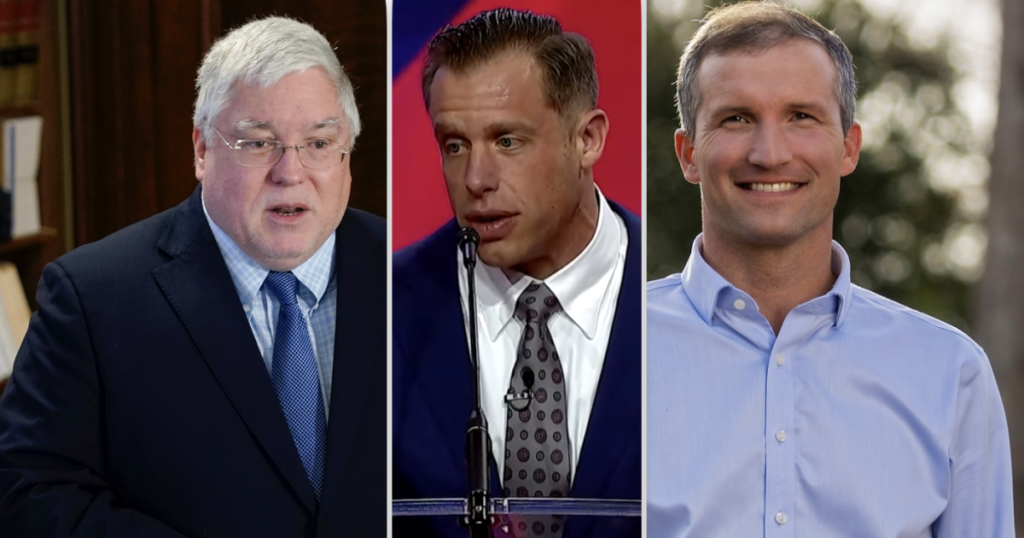In the lead-up to the West Virginia primary, Republican candidates for governor Patrick Morrisey, Chris Miller, and Moore Capito have intensified their opposition to transgender rights by running TV ads accusing each other of sympathizing with transgender individuals. The efforts have been criticized by the ACLU of West Virginia as being focused on demonizing vulnerable populations rather than providing solutions. Morrisey, in particular, has been vocal in his support of restricting LGBTQ rights and recently announced plans to appeal the overturning of the West Virginia Save Women’s Sports Act of 2021.
A super PAC supporting Morrisey released an ad targeting Chris Miller for allegedly overlooking pro-transgender events while serving on the board of Marshall University. In response, Miller has vowed to protect children from what he calls the radical transgender agenda if elected governor. Capito, another GOP candidate, has emphasized his fight against transgender surgeries on minors and puberty blockers. The candidates have engaged in a war of words, with each accusing the other of having ties to the transgender community or supporting policies harmful to women’s sports.
The Biden administration’s new Title IX regulations, which protect transgender students from discrimination in schools, have faced legal challenges from several GOP-led states, including West Virginia. Morrisey is among the attorneys general who have filed lawsuits, arguing that the changes extend Title IX’s coverage further than allowed by law. The growing anti-LGBTQ rhetoric among Republican candidates and legislators in West Virginia has attracted scrutiny from the ACLU, which has tracked 29 anti-LGBTQ bills in the state. While not all the bills have become law, the organization warns that they all contribute to harm against LGBTQ individuals.
The West Virginia legislature recently passed one of the anti-LGBTQ bills, signed into law by Republican Governor Jim Justice, which bans transgender and non-binary individuals from changing the sex designation on their driver’s license. The controversial legislation is part of a broader trend of conservative efforts to restrict LGBTQ rights in various states, with a focus on transgender issues. Education Secretary Miguel Cardona’s announcement that Title IX protects against discrimination based on sex stereotypes, sexual orientation, gender identity, and sex characteristics has further fueled the debate over LGBTQ rights in West Virginia and beyond.
As the West Virginia primary approaches, the debate over transgender rights among Republican candidates for governor continues to play a prominent role in the campaign. The criticism from advocacy groups like the ACLU underscores the contentious nature of the issue and the potential impact on LGBTQ individuals in the state. The outcome of the primary and the legal challenges to the Biden administration’s Title IX regulations will likely shape the future of LGBTQ rights in West Virginia and beyond.


